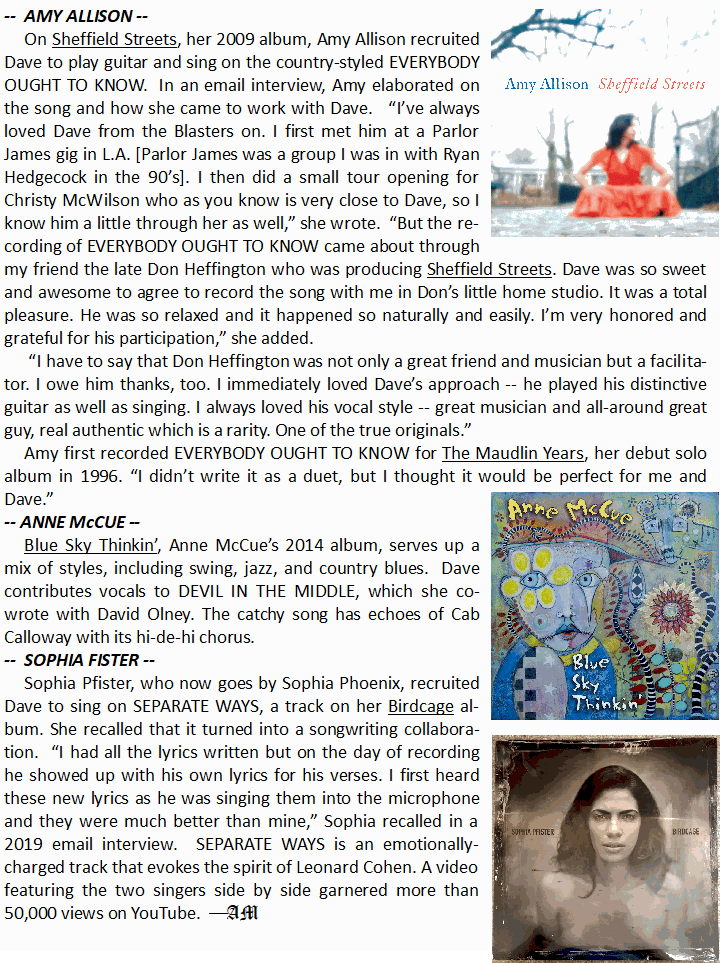|
Dave Alvin: When Shelly left, three guys took over as manager - Phil, Alex Oakley, and Art Fein. Alex was a great guy, but not qualified as a manager. But he would do anything that Phil told him to do. He was smart and would tell Phil when he was messing up. Phil wanted the band to manage ourselves in the same way that we produced our own records. It worked out on the first Slash record, but it didn't work out well sonically on Non Fiction. As much as we still got good press and TV appearances, we did lose out big time. The Blasters were known as a great live act, so people still came out and we generated press without needing a publicist because we were well liked. We did shows and didn't need tour support because we were always selling out. And this continued into when Shelly returned as our manager and on to when I left the band.
When Phil was managing, he was smart about many things, but some he was wrong on. In recent years, Phil and I have talked and he admitted he was wrong in those days. The record label did not like Art or Alex, even though dealing with Warner Bros. was part of the manager's job - they were the interface with the record label. Where Shelly could talk their language, Art and Alex didn't. If you're selling millions of records, the label doesn't have to like your manager, but in our case, Art would go in with a list of demands and they would say, screw you. So, for the Non Fiction album, Warner Bros. records did nothing for us.
Everything good around that time, we had generated ourselves. The tour with Eric Clapton happened because their manager liked us and thought we were a great band who brings people. It wasn't Warner Bros. pulling strings. We could just as well have been dead to Warners at that time.
So, our management team rented a four-room office in Hollywood. One for the receptionist and one each for Phil, Alex and Art. Every day, they would all be there at 8 am except Phil, who got up at 4 pm, so nothing could get finalized without Phil's approval [laughs]. We'd be getting gig offers at 9 am, three hours difference from the East Coast and no one could get ahold of Phil until the end of the day. We lost a lot of work that way. So, I led a mutiny against Alex, Art and Phil. Bateman, Bazz and I had a band meeting and told Phil we were firing him as manager. We added in that his dress on stage was not performance quality. So, the next gig, Phil started wearing a tuxedo to protest what we said [laughs]. Phil's solo album was also his way of saying "I don't need you guys." But I still believe that his solo album Unsung Stories is Phil's greatest achievement. I'm so proud of that record. It's really great.
Once we got Phil to agree that he wasn't gonna manage the band, we met with some big-time managers. We met with the Cars manager in Boston and Ric Okasek almost produced us. We met with the Ramones manager. I was thinking, "This is great. This guy gets us, we're gonna go places!" Then Phil talked about "gross vs. net" when negotiating their fee. Your average manager gets 20% of the gross - 20% of everything off the top. Their job is to quadruple what you make. It's always a gamble on a deal and sometimes it pays off
|
|























